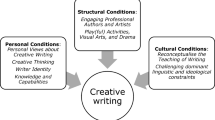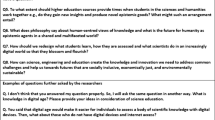Abstract
This intense engagement with Upendra Baxi’s essay, “Teaching as Provocation” (1990) reads it as an exemplar both for, and of, the humanities. Baxi’s exhortation that a teacher must be a ‘hedonist’ (rather than a ‘rationalist’ who, opposed to risk, is dull and reasonable), is one that looks to life and the arts for its inspiration, as the humanities must; it is also an essay that exemplifies humanities methods that make it deliberately conversational and argumentative at once, given to detours and asides, joyful and tentative in turn, hailing literary references via inexact memory: proposing a method of teaching by enacting it. Parsing Baxi’s extended proposition to ‘teach by provocation’ as a ‘hedonist’ in a democratic classroom, this response looks to the poetry of TS Eliot, which Baxi quotes, for parallels between the teacher and the poet. Like poets, the hedonist teacher dreams of freedom to dare–here in the classroom, where teachers and students are equals. The hedonist experiences life in its fullness and its excess, and this encounter with Baxi’s hedonist teacher-learner takes pleasure in appropriating such an adventure for the humanities classroom, as well as in suggesting that Baxi deploys what could be claimed as humanities methods in laying out his provocations in the essay.
Similar content being viewed by others
Notes
Upendra Baxi, Teaching as Provocation, in On Being a Teacher 150, 157 (Amrik Singh ed.,1990).
Id. at 150-158.
William Butler Yeats, The Second Coming (1919).
Baxi, supra note 1, at 157.
Id. at 152.
Ovid, Metamorphoses (Arthur Golding tr., 2002).
Baxi, supra note 1, at 153.
Id.
Id.
T.S. Eliot, Tradition and the Individual Talent, 19 Perspecta 36, 42 (1982).
Id. at 39.
Baxi, supra note 1, at 157.
Baxi, supra note 1, at 156.
bell hooks, Teaching to Transgress: Education as the Practice of Freedom 207 (2017).
Baxi, supra note 1, at 158.
Id. at 157.
Id. at 156.
Baxi, supra note 1, at 157.
Giorgio Agamben, The Adventure (Lorenzo Chieza trans., 2018).
Id. at 21.
Id. at 21-22.
Baxi, supra note 1, at 156.
T.S. Eliot, The Waste Land (Harold Bloom ed., 2007), 28.
Michael Levenson, The Humanities and Everyday Life (2017).
Id. at 100.
Author information
Authors and Affiliations
Corresponding author
Additional information
Brinda Bose—Associate Professor.
Rights and permissions
About this article
Cite this article
Bose, B. Teacher provocateur: hedonism and the humanities. Jindal Global Law Review 9, 279–285 (2018). https://doi.org/10.1007/s41020-018-0067-1
Published:
Issue Date:
DOI: https://doi.org/10.1007/s41020-018-0067-1




